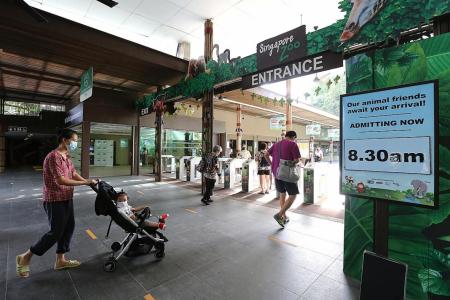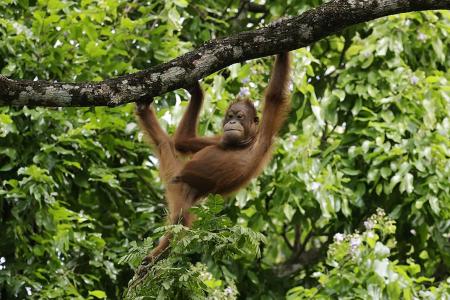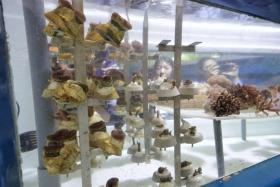Staying connected with other zoos to keep animals Covid-safe
Wildlife Reserves Singapore shares data with zoos worldwide to strengthen safety measures, says chief
Since the onset of the pandemic, there have been a few accounts of animals in zoos contracting Covid-19 - from eight big cats at the Bronx Zoo in New York in April last year to the more recent case of eight Asiatic lions at Nehru Zoological Park in Hyderabad, India.
The Bronx Zoo case and various other information from around the world have helped Wildlife Reserves Singapore (WRS), which manages the Singapore Zoo, Night Safari, River Safari and Jurong Bird Park, formulate its strategy and come up with safety protocols here.
WRS' chief life sciences officer, Dr Cheng Wen-Haur, told The New Paper: "As a member of international zoo associations, we have regularly shared data on various diseases and techniques for prevention and treatment, even prior to Covid-19.
"This exchange of information with zoos and wildlife experts across the world has continued during the pandemic and helped the zoo community to strengthen biosecurity protocols and better manage the risk of transmission of diseases."
Dr Cheng said when news first broke about the big cats at Bronx Zoo testing positive for the virus, WRS kept in touch with counterparts there on the animals' progress and recovery.
The four wildlife parks are major attractions here, and Dr Cheng, who is also WRS's deputy chief executive officer, said they have had protocols in place to manage the virus since the pandemic started, apart from regular measures like the quarantining of new animals and routine disease screening and treatment.
He said: "These include washing of hands with soap and water before and after interacting with any animal, donning face masks and gloves when working closely with an animal, minimising or avoiding direct contact unless required, in particular, with higher risk species such as primates and carnivores."
Great apes such as orangutans and chimpanzees also undergo temperature checks twice a day.
Dr Cheng explained that as the Covid-19 virus has certain features that allow them to enter their hosts' cells and cause disease, animals that are closely related to humans or have similar cellular vulnerability - like big apes and other primates - would be more susceptible to the disease.
RESPIRATORY CONCERNS
He added that clinical signs such as dry cough, lack of appetite and other respiratory concerns are swiftly reported to trigger further examinations by the veterinary team.
Dr Cheng also allayed concerns that animals pose a threat to humans as vectors of the virus. "We share the view of experts that the risk of humans contracting Covid-19 from animals is very low," he said.
The Bird Park is slated to move to its new home next year in Mandai, where it will join the upcoming Rainforest Park, Zoo, Night Safari and River Safari to become a mega five-in-one nature reserve.
For now, these attractions are operating at limited capacity. Among the added restrictions are the suspension of private buggy tours and a 50-guest limit for shows.
Ms Serena Chai, 25, an educator, who visited the zoo on Sunday, said: "The zoo is outdoors, so it feels safer compared with a mall, and everyone is more spaced out... I don't have concerns about getting the virus from animals - there haven't been any such cases here."
Get The New Paper on your phone with the free TNP app. Download from the Apple App Store or Google Play Store now



